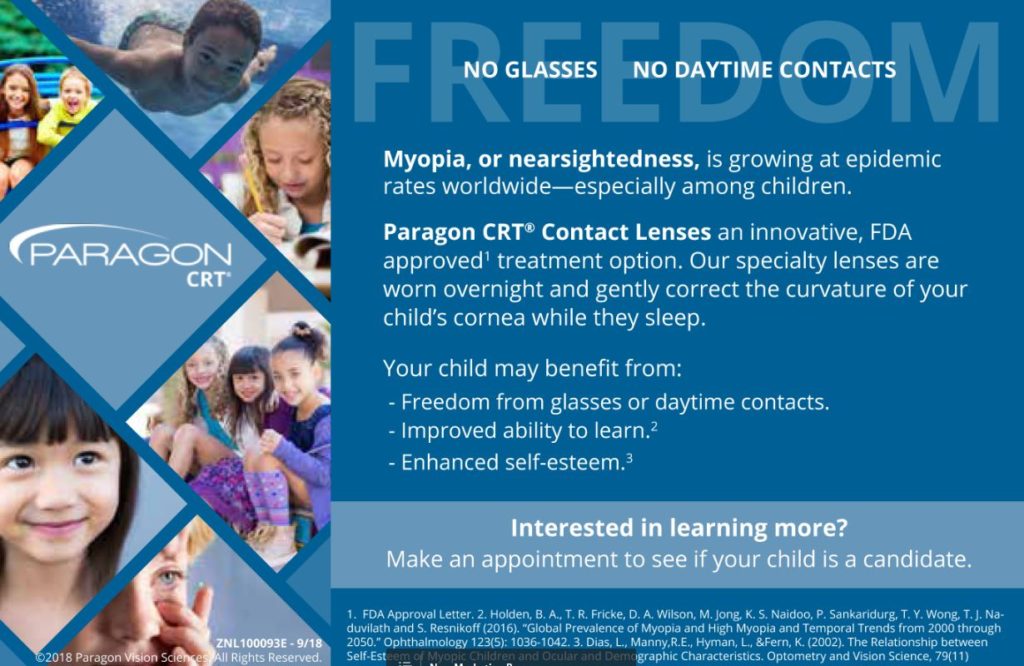Orthokerotology – No Glasses – No Daytime Contacts
CRT Contact Lenses
No Glasses – No Daytime Contacts
The procedure is called orthokerotology (ortho-k) with CRT Contact Lenses, and it’s FDA approved for all ages. Ortho-k involves fitting your child with a pair of specially designed CRT Contact Lenses, which are only worn while sleeping each night. You can find out additional information on the CRT Contact Lens website.
If you can answer “yes” to any of the questions below, I recommend calling our office to schedule an appointment for an evaluation to determine if your child is a candidate for orthokeratology with Paragon CRT contact Lenses.
- Does your child wear glasses or contact while playing sports or participating in other physical activities?
- Do glasses or contacts ever interfere with their activities?
- Are you concerned about potential injuries as a result of your child wearing glasses while playing sports or engaging in physical activities?
- Do you worry that your child is not following proper daily lens care procedures while away from home which could lead to infections or corneal or lens wearing complications?
- Does your child ever complain of sore, red or dry eyes while wearing their daytime contacts?
- I am interested in learning more about a program to manage my child’s nearsightedness (myopia) and would be willing to invest $3-5 a day, for the first year of treatment, and $1-2 a day, for subsequent years treatment.
